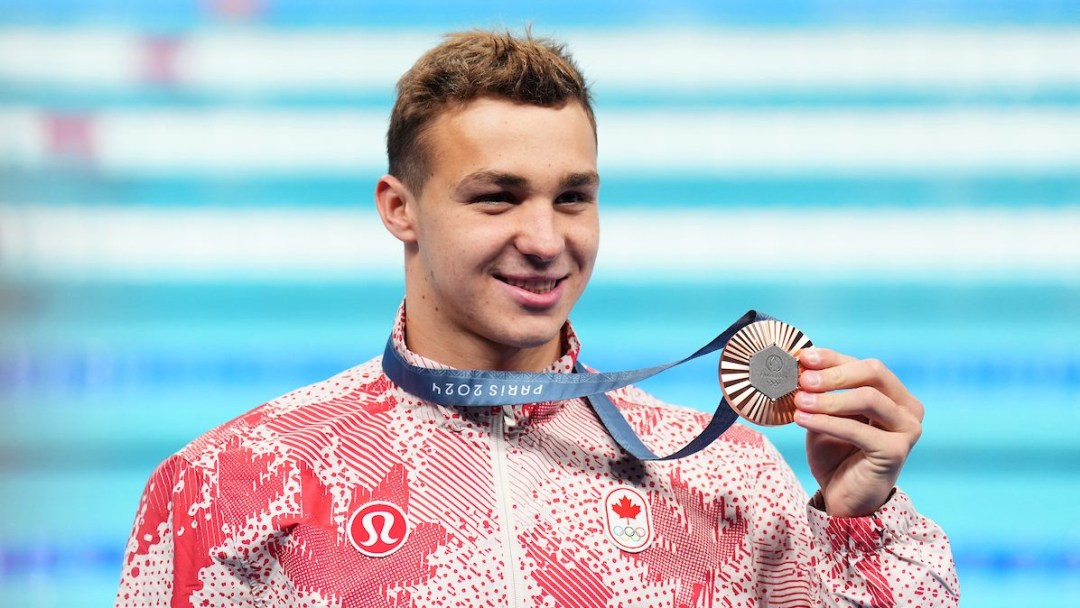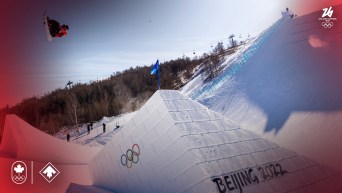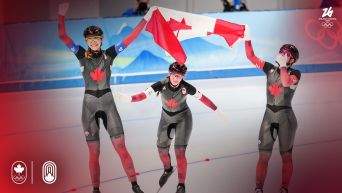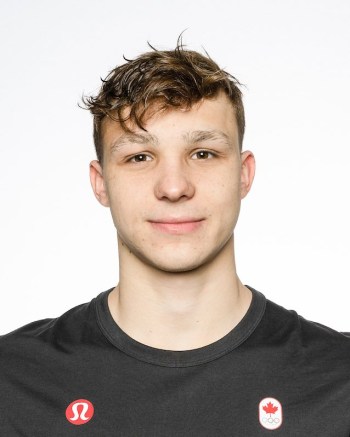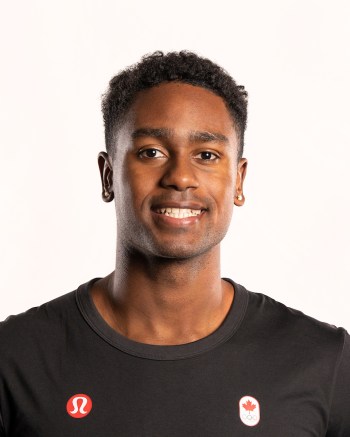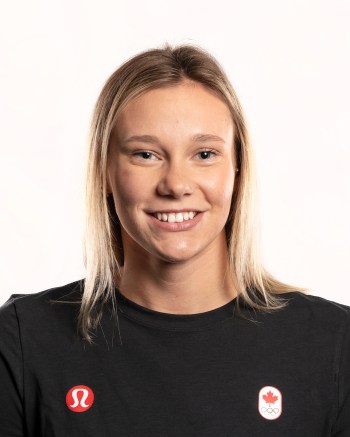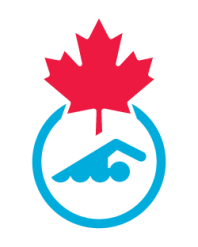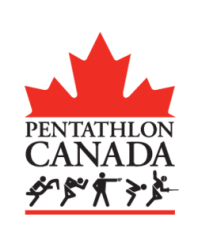Double Olympic medallist Ilya Kharun is learning more and swimming faster
You can’t talk about the future of Canadian swimming without talking about Ilya Kharun.
Kharun was born in Montreal in 2005, to parents who were travelling and performing as acrobats with Cirque de Soleil. Originally from Ukraine, the family eventually moved to Las Vegas, Nevada, where Kharun’s swimming career started.
As he progressed to become an international calibre competitor, there was a realization that despite growing up in the United States, the only passport he carried was Canadian. He happily joined a rising crop of talented young male swimmers looking to make their mark for Canada, following the success of the women’s squad in recent years.
At Paris 2024, Kharun repped the maple leaf proudly, securing two bronze medals for Team Canada.
First, the then-19-year-old bettered his own national record in the 200m butterfly, swimming to 1:52:80. Three days later, Kharun shared the podium with teammate Josh Liendo in the 100m fly; Liendo swam to a national record 49.99 for silver, followed by Kharun in 50.45, surging from seventh at the midway mark of the final to claim the bronze medal. It was Canada’s first double podium at an Olympic Summer Games in 48 years.
When he’s not in the pool racing for Team Canada, Kharun swims collegiately for Arizona State University, where he is majoring in sport business.
Olympic.ca caught up with Kharun from his home base in Tempe—where he proudly displays a Canadian flag on the wall—to chat Olympic Village life, Paris podiums, and continuing to learn and grow as an athlete.
What was your journey into swimming?
I started swimming around four years old. My mom put me into swimming, and she thought, even as a young kid, that I was good enough that it could possibly go somewhere. At 6-7 years old, I broke a couple of team records and things like that, and a couple of SoCal records as well as I was going through ages. I never really thought of any other different sport.
This is the first time Olympic.ca has had a chance to catch up with you since Paris 2024. Two medals at your first Olympic Games! Now that you’ve had a little bit of time to digest the experience, what are the memories that stand out to you?
Oh man, the memories! I think the most notable memories are living in those dorms in the Olympic Village. My roommates were Finlay [Knox], Blake [Tierney] and Josh [Liendo], and it was really fun being with them, going through the Olympic experience, through all the racing days and things like that. Those are my fondest memories, being in the village, at the pool, and just exploring. There was a free ice cream machine [at the village], which was awesome!
It was definitely a once-in-every-four-years kind of feeling. There’s so many famous athletes walking around, and it’s just so amazing. The pool was so surreal. To hear everyone scream, and the whole aura of the arena was just amazing to experience, and just to be there was definitely an honour to represent Canada.
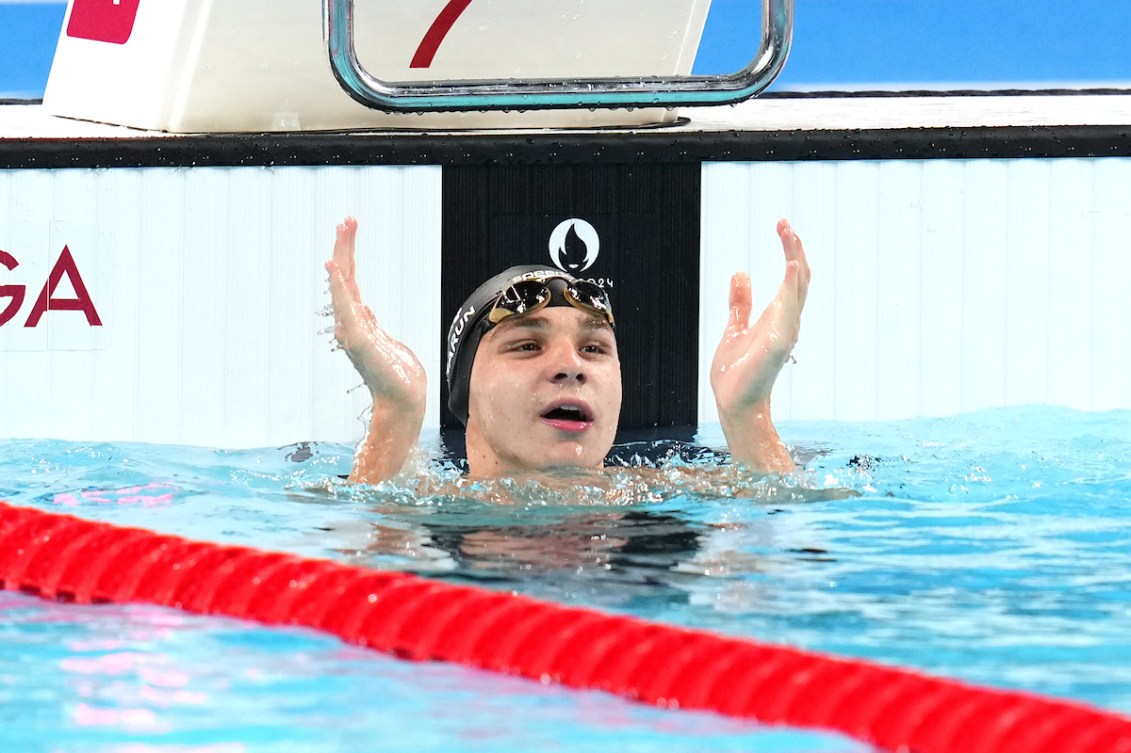
We didn’t have that many Canadian double podiums, so that’s an extra special experience that you got to have. What was it like being able to share the podium with Josh?
Oh, it was so amazing. Me and Josh talked about it a couple days before, we were like, “Dude, I don’t think there’s been a double podium in Canadian men in a long time…how awesome would it be if we both did it!” We kind of spoke it into existence, and we both medalled in the 100m butterfly.
Josh ran up to me during my interview with CBC, and he was like “Yeahhh!!” It was so funny. After that, I was so happy because I got my second medal. It was definitely such an honour to be in that moment with Josh.
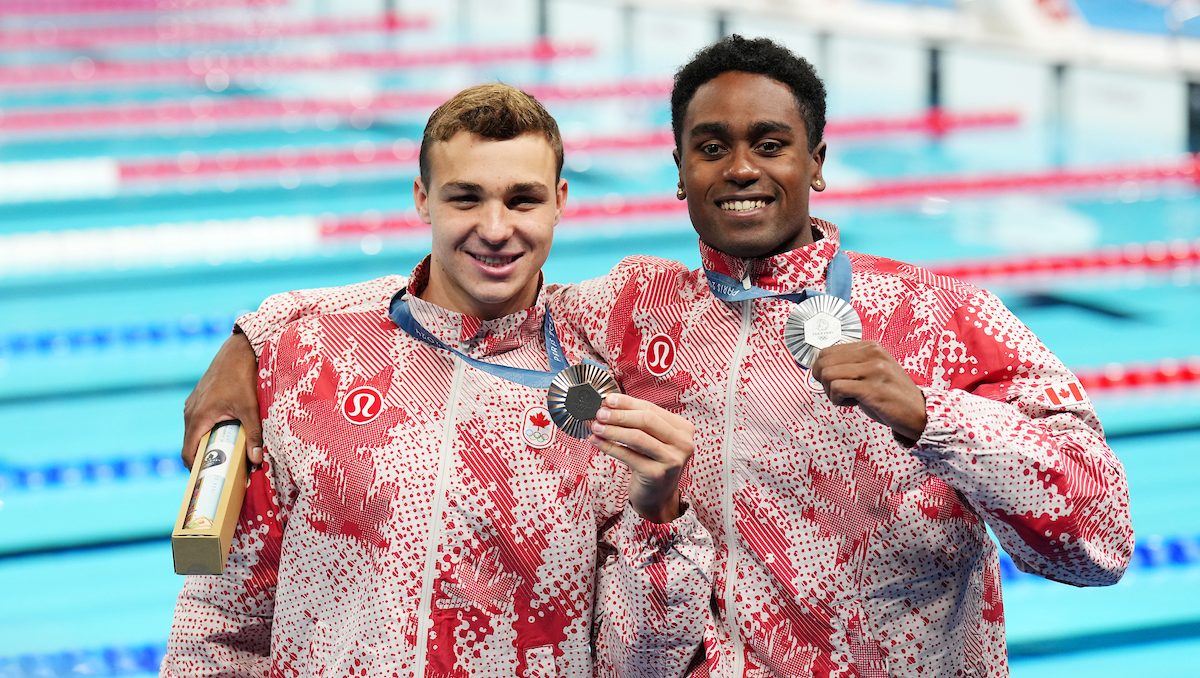
And this is not the only time that you have shared a podium with Josh—that’s also happened in your NCAA life! What was it like shifting from the huge experience of the Olympics back to school and collegiate competition and training?
Coming back, I didn’t really fully process, I think, the Olympic Games. I kind of just was like, alright, let’s get through to the next thing, which was NCAA [Championships]. I kept practicing and swimming, trying to get good times, qualify for NCAAs, things like that.
There was a little bit of a bump I hit in February. It was after our conference [championship], which is Big 12s. I was pretty worn out mentally and I didn’t really understand why. But, I finally understood that it was because the [whole experience of the] Olympics had finally started to hit me and things like that. And swimming was feeling a bit heavy for me.
I should have taken more of a break. I understand now why people of such a high level take huge breaks. [I think] Léon [Marchand] took 2-3 months off. I kind of went straight back into it.
So I took a little break, maybe 4-5 days of break before NCAAs, and it helped me kind of reset my mind and go into NCAAs with a good mindset of, alright, let’s do this, let’s try and win, or try and get good times.
Medalling with Josh in the 100 fly was awesome in the NCAAs. He’s such a great person as well to look up to and try to strive so that maybe one day I can beat him!
But yeah, there was kind of a learning curve for me after the Olympics, and learning that sometimes you need to have a moment to yourself before you get into the next thing.
We hear that from so many athletes—that the Olympics are a huge experience, not just physically, but mentally and emotionally. There is really a recovery process that’s different from some other competitions.
You’re also coming off of a new national record in the 50m butterfly at the Pro Swim Series in early May. Can you talk me through that race?
I was going into that meet trying to see what I could go for my first long course meet [of the season]. I was going in there with kind of high hopes of what I could do.
Day one, I kind of hit a bump in the 200m fly [heats], but just told myself, it’s all right, you still need more training, more endurance. I was a little bit upset, but that wasn’t going to stop me. So I decided to scratch finals for that.
Then the next day, I kind of just went into it with a brand new energy, ready to go. I ripped a good prelims to get me into finals [in the 50m butterfly]. I went my best time, 23.09, which was very exciting for me.
From there, I’m just gonna keep trying to lower it, of course, trying to get new techniques to improve more. But it was a very, very good feeling that I finally got my [record] back from Finlay. I actually texted him, and he was like, “Yeah, finally!”
The 100m fly the next day was very fun. I was just, like, coming off that high of energy. I kind of just kept it going through the whole meet. And of course, watching Katie Ledecky and Gretchen [Walsh] setting world records, I was like let me see what I can do! [Kharun clocked a new personal best of 50.42].
Rapid fire with Ilya Kharun
An athlete that you look up to?
I have a few! Caleb Dressel, Michael [Phelps] and Léon [Marchand].
What’s the hardest practice you’ve ever had?
I’ve had a couple with Herbie [Behm, Kharun’s collegiate coach]!
I did one not too long ago, it was a long course practice. It was 15 x 200m long course, on a descending interval, so each interval of five got faster.
Any pre race rituals or routines?
Just breathing techniques. And I listen to EDM music right before I go out.
Favorite event to race?
I like all the races—50m,100m and 200m fly, but I really love the 50m fly.
And any advice that you might give to youth athletes?
I would say, don’t overthink things. Just have fun and put your head down and just work.

